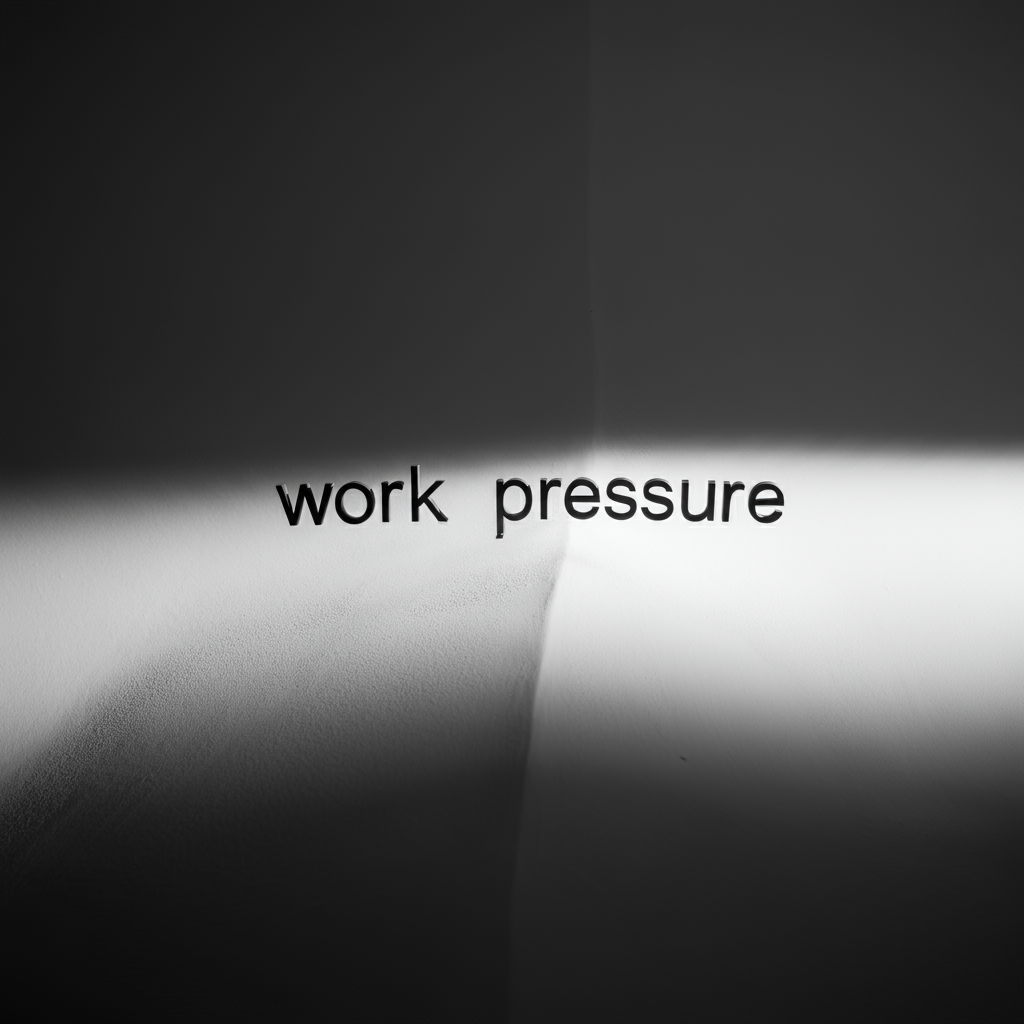This article covers performance tips under pressure
Work Pressure in office environment is often disastrous. Not just your mental health is affected, it also affects relations, your body and multiple aspects of one’s life. Given that in today’s fast-paced and competitive work environment, the ability to perform well under pressure has become a crucial skill for employees across all industries. The demands of the modern workplace are relentless, with tight deadlines, high expectations, and the constant push for excellence. In such an environment, the pressure to deliver results can be overwhelming, leading to stress, burnout, and a decline in overall performance. Yet, amidst these challenges, some employees not only survive but thrive. They manage to maintain their composure, stay focused, and deliver outstanding results even in the most stressful situations.
What sets these individuals apart? The answer lies in their ability to develop and hone specific skills and strategies that allow them to manage pressure effectively. These skills are not innate but can be cultivated through practice, self-awareness, and a commitment to personal growth. Understanding the nature of pressure and how it impacts performance is the first step. From there, employees can learn techniques to manage stress, maintain focus, and turn high-pressure situations into opportunities for growth and achievement.
In this article, we will explore practical strategies that employees can use to maintain their ability to perform their roles and responsibilities under pressure. We will delve into real-life examples, providing insights into how successful individuals manage pressure and the mindset shifts that enable them to excel. Whether you’re facing tight deadlines, managing multiple projects, or navigating complex interpersonal dynamics, the strategies outlined here will equip you with the tools to not only cope with pressure but to thrive in it. Let’s begin this journey to mastering the art of performing under pressure.
Understanding Pressure and Its Impact on Performance
Pressure is an inevitable part of any job, and it can manifest in various forms, such as tight deadlines, high expectations from management, complex projects, or the need to make quick decisions. While a certain level of pressure can be motivating, pushing employees to perform at their best, excessive pressure can have the opposite effect. It can lead to stress, anxiety, and even burnout, significantly affecting an employee’s ability to perform their duties effectively.
The Role of Perception in Handling Pressure
How an employee perceives pressure plays a significant role in how they respond to it. Those who view pressure as a challenge to overcome are more likely to approach stressful situations with a positive mindset. They see these situations as opportunities to grow and prove their capabilities. On the other hand, employees who view pressure as a threat may experience heightened anxiety and fear, leading to a decrease in performance.
For example, consider an employee who is given a tight deadline to complete a critical project. If they view this deadline as an opportunity to showcase their efficiency and problem-solving skills, they are more likely to approach the task with enthusiasm and focus. However, if they see the deadline as an insurmountable challenge, they may become overwhelmed, leading to procrastination and subpar work.
Developing Resilience: The Key to Thriving Under Pressure
Resilience is the ability to bounce back from adversity and maintain a positive outlook despite challenges. It is a critical skill for employees who want to perform well under pressure. Resilient employees are better equipped to handle stress, adapt to changing circumstances, and maintain their performance levels even in difficult situations.
Practical Example: Building Resilience Through Experience
One way to develop resilience is through experience. Employees who have faced and overcome challenging situations in the past are more likely to handle future pressure effectively. For instance, an employee who has successfully managed a high-stakes project in the past will have greater confidence in their ability to handle similar situations in the future. This confidence, in turn, reduces the negative impact of pressure and allows the employee to perform at their best.
Emotional Intelligence: A Pillar of Resilience
Emotional intelligence (EI) is another crucial component of resilience. Employees with high emotional intelligence are better at recognizing and managing their emotions, as well as understanding the emotions of others. This skill is particularly important in high-pressure situations, where emotions can run high and negatively impact decision-making and performance.
For example, a team leader who can manage their stress and remain calm during a crisis is more likely to make rational decisions and lead their team effectively. Their emotional stability also has a positive influence on the team, helping to maintain morale and focus.
Time Management: A Critical Skill for Managing Pressure
Effective time management is essential for employees who want to maintain their performance under pressure. Poor time management can lead to missed deadlines, increased stress, and a feeling of being overwhelmed. Conversely, employees who manage their time well are more likely to complete their tasks efficiently, reducing the pressure they experience.
Practical Example: Prioritization and Delegation
One practical approach to time management is prioritization. Employees should focus on completing the most critical tasks first, ensuring that they meet deadlines and deliver high-quality work. Delegation is another important aspect of time management. By delegating less critical tasks to others, employees can free up time to focus on high-priority responsibilities.
Consider a project manager who is juggling multiple projects with tight deadlines. By prioritizing the most important tasks and delegating smaller, less critical tasks to team members, the project manager can ensure that they meet their deadlines and maintain the quality of their work. This approach not only reduces pressure but also fosters a sense of teamwork and collaboration.

Stress Management Techniques: Staying Calm Under Pressure
Managing stress is crucial for maintaining performance under pressure. Employees who can effectively manage their stress levels are more likely to stay focused, think clearly, and make sound decisions even in high-pressure situations.
Mindfulness and Meditation
Mindfulness and meditation are powerful tools for managing stress. These practices help employees stay present, reduce anxiety, and maintain a calm and focused mind. Regular mindfulness practice can also improve emotional intelligence, making it easier for employees to manage their emotions in stressful situations.
For example, an employee who practices mindfulness may take a few minutes to breathe deeply and focus on the present moment before a high-stakes meeting. This simple practice can help reduce anxiety, allowing the employee to approach the meeting with a clear and focused mind.
Physical Activity and Healthy Lifestyle Choices
Physical activity is another effective way to manage stress. Regular exercise releases endorphins, which are natural stress relievers. Additionally, maintaining a healthy lifestyle, including a balanced diet and adequate sleep, can help employees build resilience and reduce the negative impact of pressure.
Consider an employee who regularly engages in physical activity, such as running or yoga. These activities not only help the employee stay physically fit but also provide a mental break from work-related stress. As a result, the employee is better equipped to handle pressure and maintain their performance.
Building a Support System: The Power of Connection
Having a strong support system is crucial for managing pressure. Employees who feel supported by their colleagues, managers, and loved ones are more likely to handle stress effectively and maintain their performance.
Practical Example: Seeking Support from Colleagues
In a high-pressure work environment, it is important for employees to build strong relationships with their colleagues. These relationships can provide emotional support, encouragement, and practical assistance during challenging times. For example, an employee who is feeling overwhelmed by a tight deadline may seek help from a colleague who has experience with similar projects. This support can not only reduce the employee’s stress but also improve the quality of their work.
The Role of Management in Providing Support
Managers play a critical role in supporting employees under pressure. A supportive manager who provides clear expectations, constructive feedback, and encouragement can significantly reduce the pressure employees feel. Additionally, managers who promote a positive work environment and recognize employees’ efforts can boost morale and motivation, helping employees maintain their performance under pressure.

For instance, a manager who regularly checks in with their team members, offers assistance when needed, and acknowledges their hard work can create a supportive and positive work environment. This environment fosters resilience and helps employees feel more confident in their ability to handle pressure.
Developing a Growth Mindset: Turning Pressure into Opportunity
A growth mindset is the belief that abilities and intelligence can be developed through effort and learning. Employees with a growth mindset view challenges and pressure as opportunities to grow and improve, rather than as obstacles to success.
Practical Example: Embracing Challenges as Learning Opportunities
Employees who embrace a growth mindset are more likely to view high-pressure situations as opportunities to learn new skills and gain valuable experience. For example, an employee who is tasked with leading a complex project for the first time may initially feel overwhelmed by the pressure. However, by adopting a growth mindset, they can approach the situation with a positive attitude, viewing it as an opportunity to develop their leadership skills.
The Role of Continuous Learning in Building a Growth Mindset
Continuous learning is a key component of a growth mindset. Employees who are committed to learning and self-improvement are better equipped to handle pressure and maintain their performance. This commitment to growth can take many forms, such as seeking out new challenges, attending training sessions, or learning from feedback.

For instance, an employee who regularly seeks out opportunities for professional development, such as workshops or online courses, is more likely to feel confident in their ability to handle pressure. This confidence, in turn, helps them maintain their performance and excel in their role.
Conclusion: Thriving Under Pressure
Maintaining the ability to perform under pressure is not about eliminating stress but about developing the skills and mindset to manage it effectively. By understanding the nature of pressure and its impact on performance, employees can develop strategies to build resilience, manage stress, and maintain their focus in high-pressure situations. Whether through time management, emotional intelligence, a strong support system, or a growth mindset, employees can turn pressure into an opportunity for growth and achievement.
In the end, thriving under pressure is about embracing challenges, staying positive, and continuously learning and growing. By cultivating these qualities, employees can not only survive in high-pressure environments but also excel, delivering outstanding results and achieving their full potential.
Related reads:





This is a topic close to my heart cheers, where are your contact details though?
When I originally commented I clicked the “Notify me when new comments are added” checkbox and now each time a comment is added I get three e-mails with the same comment. Is there any way you can remove me from that service? Appreciate it!
Hi Galeas27236@gmail.com, I cant find your user in our database. I believe you haven’t registered it yet.
you have an awesome weblog here! would you like to make some invite posts on my blog?
yes – I would love to do that.
Hello there, I discovered your website via Google even as looking for a similar subject, your web site got here up, it appears good. I’ve bookmarked it in my google bookmarks.
Some genuinely excellent information, Sword lily I observed this.
We’re a group of volunteers and starting a new scheme in our community. Your web site offered us with valuable information to work on. You have done an impressive job and our whole community will be grateful to you.
That’s Brilliant! I am delighted that my article/work really helped someone. Thanks!
What i do not understood is in truth how you are not actually a lot more smartly-preferred than you may be now. You’re very intelligent. You recognize thus considerably when it comes to this matter, produced me personally believe it from numerous various angles. Its like men and women aren’t involved unless it’s something to do with Lady gaga! Your personal stuffs great. Always maintain it up!
Sweet web site, super design, really clean and apply genial.